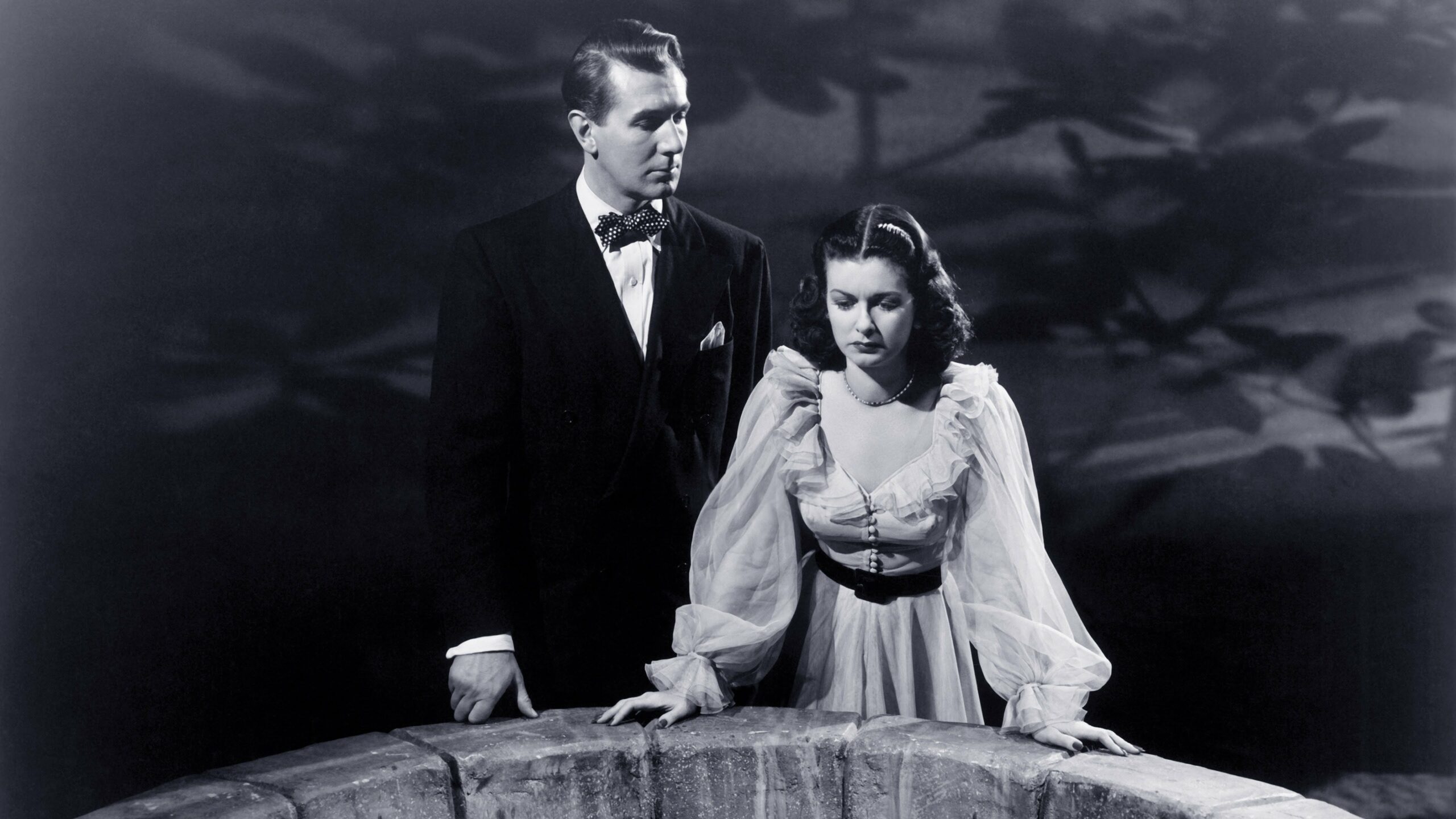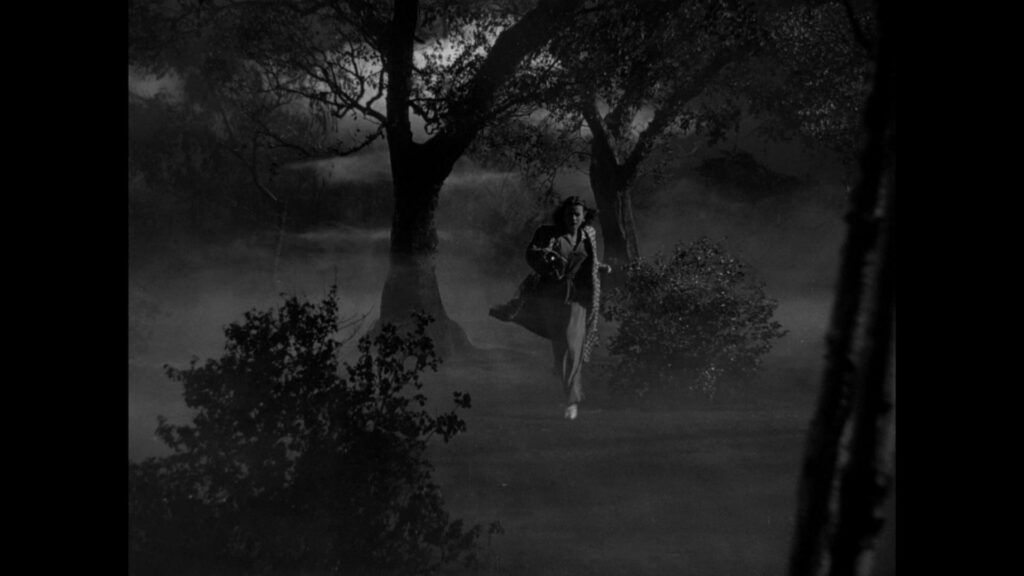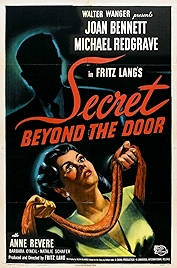Largely bonkers, 1947’s Secret Beyond the Door is a great film if what you need is a laugh, but a joke as what it’s meant to be – a twisted psychological film noir.
It’s the last of five collaborations between Joan Bennett and director Fritz Lang, and it’s produced by Bennett’s husband, Walter Wanger, who saw this film as a way of reheating the Rebecca pot, Hitchcock’s Oscar-winning first Hollywood movie of seven years earlier. It is the Rebecca story all over again, in fact – woman marries rich guy as his second wife and finds she can’t live up to the memory of the first – but with an addition of the Bluebeard legend (the husband who marries women to kill them).
Bennett plays a rich New Yorker who is courted and falls for a dashing architect (Michael Redgrave) while on holiday in Mexico with her wisecracking gal pal, Edith (Natalie Schafer, well cast but appearing to be from another movie).
In the blink of an eye Celia (Bennett) and Mark Lamphere (Redgrave) are married and Celia has been whisked back to the family pile, where, it’s suddenly revealed, Celia is not wife number one but wife number two.
Other revelations include the fact that Mark also has a son, a “sensitive” boy called David (Mark Dennis) who doesn’t seem to like the woman he refers to only as “Mrs Lamphere”. Mark’s sister, Caroline (Anne Revere), is a little chilly towards Celia as well. But most disapproving of all is Miss Robey, Mark’s right-hand-woman, a character obviously modelled on Mrs Danvers from Rebecca.
Two more things to know, neither of them really convincingly woven into the plot – Mark is actually broke, and so might have an interest in Celia that’s beyond the romantic. And Mark has a strange hobby, recreating rooms where terrible things – murders, mostly – happened. In fact one whole wing of the vast house where he lives is reserved for this weird pastime.
Mark has a bunch of other hang-ups, like an aversion to lilacs which seems to be something to do with childhood trauma, and a tendency to blow emotionally hot and cold for no apparent reason.
Mark appears to be in the grip of an unresolved Oedipus complex in the same way that this movie is in the grip of Sigmund Freud’s theories (Secret Beyond the Door is a Freudian title if ever there was one). These are usually expressed in the near-constant voiceover by Celia, but at one point Silvia Richards’s screenplay resorts to introducing a character billed as “Intellectual Sub-Deb”, who ladles on buckets more sub-Freudian explication before disappearing as fast as she appeared.
It is as highly strung as it is hopeless, with characters constantly biting a lip or turning on their heel to leave a room in a huff. But there is still some force in the basic idea. What is the secret beyond the door? Is the door actual or metaphorical? Of course it’s both – Mark has six of these rooms, but what could be in room seven? Duh, duh, duuuuh.
But really you’ll be asking, why is Celia, who has the sort of self-possession that the heroine of Rebecca lacked, staying with this weirdo?
Fritz Lang attempts to tie together a series of characters and plot elements that don’t want to hang together with flourishes of technique. The opening credits suggest we’re in for something surreal, but from here on there’s a more straighforwardly Langian approach – economical but not afraid to swing in with one of those fancy crane shots Lang was so good at.
It’s an excellent-looking film all the way through. The lighting is by Stanley Cortez, who did The Magnificent Ambersons and The Night of the Hunter, and the clothes worn by Bennett are by Travis Banton, the man who put Marlene Dietrich into a sheath dress and does similar masculinising things to Bennett here. All part of an underdeveloped subtext about gender roles, but doesn’t Bennett look great?
Composer Miklós Rózsa’s goes at it with real energy and his score manages to capture the overheated nature of the undertaking, sawing away melodramatically like a dog gnawing a bone.
For all its faults, Lang does actually get this movie airborne in its last stretch, as Celia works out what’s in room number seven and Mark’s full madness becomes clear. In some of the film’s most beautifully lit moments, there’s a dash for the melodramatic finish line, first out in the woods, then in room number seven, where Celia and Mark finally face off and then float away in a lake of mad Freudian custard.
Secret Beyond the Door – Watch it/buy it at Amazon
I am an Amazon affiliate
© Steve Morrissey 2024


